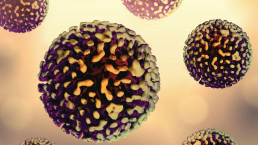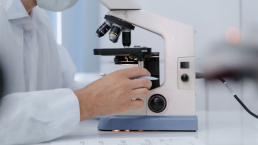
Empowering Women and Girls in Science
The International Day of Women and Girls in Science takes place on the 11th of February every year. It’s important to celebrate the amazing contributions women make in science. In addition, empowering future women scientists is important by supporting and encouraging girls to break into the field. The theme this year for the International Day of Women and Girls in Science focuses on sustainability by promoting the 2030 Sustainable Development Goals (SDGs).
Sustainable Development Goals act as a blueprint to achieve a sustainable future for all countries. They are a call to action for all countries, from the richest to the poorest. An opportunity to collaborate and promote prosperity whilst protecting the planet. Protecting the planet from further climate change damage is beneficial for us all. But these goals also recognize that ending poverty and promoting economic growth whilst tackling climate change all go hand in hand.
This article focuses on empowering women scientists who have contributed research related to achieving these goals. Also, how MDPI has supported and awarded their research efforts.
United Nations Sustainable Development Goals
There are 17 UN Sustainable Development Goals in total for global justice.
Equality in science has always been of great importance to the United Nations. The empowering of women and girls in science is important for progress toward these SDGs. As a predominantly scientific publisher, it’s important to see equality in science be supported by large organizations. Moreover, it’s also great to see so many crucial goals and areas highlighted and targeted for further research. Allowing publishers the opportunity to promote and support submissions from specific research areas.
As the contributions of women and girls drive crucial research and incredible breakthroughs in science, it’s important to bring light and awareness to their important work.
Specifically, the goals highlighted for this year’s theme for the International Day of Women and Girls in Science include:
- SDG 6: clean water and sanitation
- SDG 7: affordable and clean energy
- SDG 9: industry innovation and infrastructure
- SDG 11: sustainable cities and communities
- SDG 17: partnership for goals
Women researchers contribution to sustainability
At MDPI we have a large volume of Special Issues dedicated to empowering women researchers across various journals over the past few years. In addition, the specific achievements of these researchers are often rewarded. One example of this is with MDPI’s World Sustainability Award.
MDPI’s World Sustainability Award.
The World Sustainability Award was first established in 2017 by the MDPI Sustainability Foundation. The award focuses on encouraging and empowering new initiatives and developments in sustainability. Nominees of the award can be individual researchers and research groups. In order to be nominated the researchers must have made and continue to make outstanding contributions to sustainability in general.
How to apply for MDPI’s World Sustainability Award
To qualify for this award nominees must meet the nomination criteria. This includes making a unique, sustained, and outstanding achievement based on strong pure or applied research in any appropriate discipline. These achievements must address at least two pillars of sustainability, including:
- Social (Standard of Living, Education, Community, Equal Opportunity)
- Environmental (Natural Resource Use, Environmental Management, Pollution Prevention)
- Economic (Profit, Cost Savings, Economic Growth)
The nominees must demonstrate a measurable impact within these pillars. Nominees should also have made novel achievements and have feasibility within real-time research. In addition, they must have entrepreneurial potential and align with the SDGs.
Previous recipients
Dr. Antonella Santuccione Chadha was a recipient of this award In 2020. She is a medical doctor with expertise in clinical pathology, neuroscience, and psychiatric disorders. She is a co-founder of the non-profit organization “Women’s Brain Project”, which is addressing the influence of sex and gender on mental and brain diseases. The “Women’s Brain Project” is a group of scientists from a wide range of disciplines including medicine, neuroscience, psychology, and pharmacy. They use their influence to collaborate with caregivers, patients, pharmaceutical companies, policymakers, and other stakeholders to encourage global discussions on gender and sex determinants of vulnerability to specific brain and mental diseases.
The research group has successfully organized events, workshops and forums, where scientist and professionals can facilitate these conversations and empowering men and women to ask more questions around their mental health. Furthermore, the research group is consistently working towards publishing research in the areas of sex and gender differences in neurological disorders
She has a keen interest in removing bias when developing solutions for mental and neurological diseases to achieve precision medicines, empowering men and women to make informed decisions about their mental health. Furthermore, she was awarded the Sustainability Award for outstanding contributions to sex- and gender-oriented precision medicine.
As of 2023, many of MDPI’s Special Issues are being dedicated to women’s achievements in science. A variety of these Special Issues are dedicated to sustainability and climate change, as a result of this many of these achievements also relate to the UN’s SDGs.
How women researchers are tackling clean water and sanitation
SDG 6 is to ensure access to safe water sources and sanitation for all. Safe water sources are a basic human right but even in 2022 this is not a reality for some communities. In fact, without immediate action, billions of people will still lack access to clean and safe water sources in 2030. The demand for water is only increasing due to the rapid growth of the world’s population. In addition, there is also an increased need for water sources from the agriculture, industry, and energy sectors.
Resources has announced a Special Issue entitled “Sustainable Resource Management”. This Special Issue celebrates the role of women in sustainable resources management.
It’s hosted by women for women researchers and invites submissions from research projects involving sustainable development, community water management, environmental health, etc.
One paper focuses on community water management, by focusing on issues concerning the viability and use of Karst aquifers to provide essential drinking water. These sources of fresh water can be found naturally worldwide and provide a lifeline as the population increases. Because of this, the paper not only addresses SDG6, but also SDG9: to seek resilient infrastructure, promote sustainable industrialization, and foster innovation.
Karst aquifers
Karst aquifers are groundwater ecosystems that consist of fissured carbon rocks with large passages and caves. They are commonly covered by collapsed cover sinkholes and account for 25% of drinking water sources globally. One-quarter of the world’s population depends on these resources for drinking water.
The review demonstrates that these crucial sources of drinking water are at risk of contamination from various sources. This risk is becoming more and more prevalent with the continued use and leeching of agricultural contaminants, pollutants, and microplastics into the environment. This review addresses these concerns and looks at the impact that these issues are having on the availability of drinking water. Furthermore, the research team provided a strategy to control and protect these water sources. Protecting these water sources and reinforcing a resilient infrastructure would provide clean drinking water to a wide range of countries.
How women researchers are contributing to ensuring access to affordable and clean energy
SDG 7 is to ensure access to clean and affordable energy, and SDG 9 is to seek and build resilient infrastructure, promote sustainable industrialization, and foster innovation.
Both of these goals link to each other, as sustainable energy is a step towards sustainable industrialization. Currently, 3 billion people rely on wood, charcoal, or animal waste to generate energy. This is the main contributor to climate change as the pollution produced during these processes accounts for 60% of the total global greenhouse gas emissions. This lack of clean energy suppliers is a constraint to human development and economic development. Furthermore, it encourages further damage to the planet.
There are many different alternatives to fossil fuels and clean energy that are being explored. However, achieving clean and affordable energy is more difficult, as many alternative energy forms are expensive.
Micro-hydropower is an alternative form of energy that is being described as one of the most cost-effective and reliable renewable energy technologies. It accounts for the second-largest renewable energy source in Europe, producing a third of electricity sourced from renewable sources.
Micro-hydropower
Hydropower is energy that is produced from the flow of water. This energy can be used to generate electricity.
Micro-hydropower refers to produced energy of less than 100kW. It has applications in open channels and pipes. There has been a lot of research that has explored the physical and technological parameters. This is in addition to the cost and environmental parameters that affect the design, installation, and maintenance of these systems.
However, there has been limited research conducted on the social, political, and institutional considerations important for the longevity of this renewable resource. This is crucial for the acceptance of these systems in society and for increasing their use.
A study in the Special Issue “Women in Energy and Environment” investigates these aspects by calculating the social return on investment in micro-hydropower in both public and private investment in Europe. The research group made up primarily of women, identified that the social return on investment was between 2.6 and 5.8 euros for each euro invested, highlighting that there is social value in micro-hydropower as a resource.
How women researchers are empowering sustainable cities and communities
SDG 11 is about making cities and human settlements inclusive, safe, resilient, and sustainable. This includes providing access to safe, affordable, accessible, and sustainable transport systems for all. This will improve road safety, by expanding public transport, with special attention paid to the needs of those in vulnerable situations, women, children, persons with disabilities, and older persons by 2030.
Artificial intelligence (AI) can provide some solutions to this issue. AI has already made huge strides in the automated vehicle field, as driverless cars become a reality. Germany has already adopted legislation that will allow driverless vehicles on public roads in 2022.
The journal Applied Sciences launched a Special Issue named “Women in Civil Engineering”, which contains a study investigating children and teenagers’ willingness to use automated vehicles as part of their daily transport.
This study focuses on empowering children and teenagers by providing them with other options for transportation. Improving their quality of life gives children and teenagers more motivation and could help to improve their future. The study involved inviting children and teenagers to a series of focus groups and demonstrations of automated vehicles.
They were then asked to fill out a survey to give their opinions on the topic. The results show that many teenagers appreciated the advantages that this scheme could have; however, they expressed concerns regarding interactions with other road users.
Partnerships for the goals
As the world focuses on sustainability and climate activism, it’s clear that women and girls in science are paving the way for research in a wide variety of topics.
Working towards a sustainable world is not an easy task. However, as more of the UN SDGs are being tackled, it’s important to celebrate the strides that all researchers are making in this area, empowering women.
Conclusion
This post demonstrates the important work that women researchers are doing to facilitate partnerships and promote sustainability and action against climate change. The UN development goals allow all researchers to collaborate and explore research fields that will help to save the planet from climate change action.
If you’re interested in reading more or submitting research to any of our “Women in…” Special Issues, you can find more information here.











Very informative
Hi Laura,
Thank-you for your comment! I’m glad you enjoyed the article!